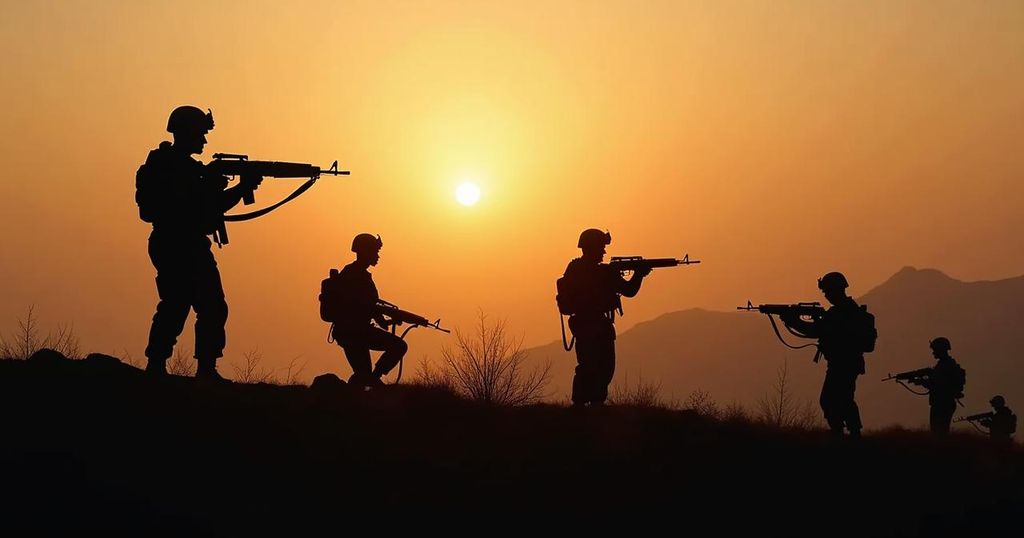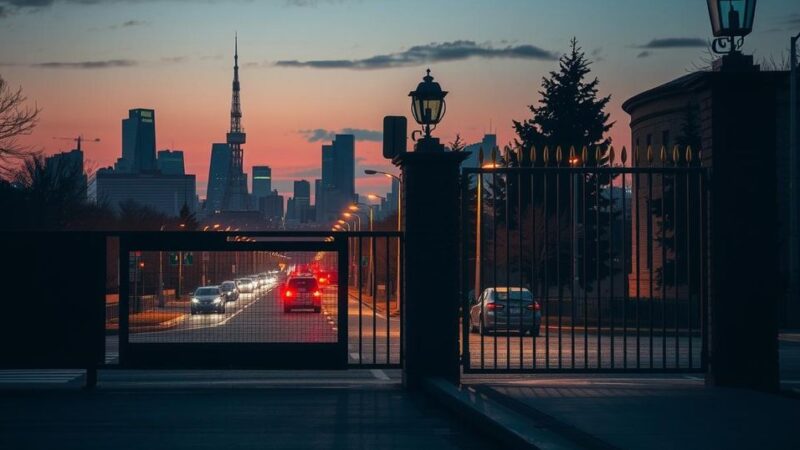On Tuesday, Israeli ground forces launched a “limited” offensive against Hezbollah in southern Lebanon, marking an escalation in the conflict following heavy airstrikes that killed Hezbollah leader Hassan Nasrallah. The Israeli military described the operation as targeting immediate threats to northern Israeli communities, while fears of further civilian displacement in Lebanon grow. Meanwhile, Iranian leadership has expressed caution regarding retaliation for Nasrallah’s death, highlighting the complexities of the regional power dynamics.
In the early hours of Tuesday, Israeli ground forces commenced a “limited” incursion into southern Lebanon, signifying an escalation in the ongoing conflict with Hezbollah militants. The Israeli military characterized the operation as involving “limited, localized and targeted ground raids” against specific Hezbollah positions, aiming to neutralize perceived threats to Israeli communities along the northern border. This offensive follows an intense series of Israeli airstrikes that have decimated Hezbollah leadership, most notably the recent airstrike that resulted in the death of longstanding leader Hassan Nasrallah. The Israeli military confirmed that significant artillery bombardments continued throughout the evening, with reports of airstrikes resonating in Beirut, marking a stark increase in military activity in the region. This operation occurs against a backdrop of heightened tensions, as previous engagements between Israel and Hezbollah contribute to a volatile regional landscape. The relationship between Iran and its ally Hezbollah appears strained; while Iranian officials have vowed retaliation for Nasrallah’s assassination, they have been cautious in their responses due to the potential for broader conflict. Reports indicate that tens of thousands of Lebanese civilians have already fled southern Lebanon due to fears of further military action. Throughout the day, artillery fire could be observed hitting various targets in southern Lebanon, with residents being ordered to evacuate from buildings identified as potential military sites. Despite their resources, Hezbollah’s forthcoming actions remain uncertain, potentially indicating a strategic reserve in anticipation of future confrontation. Israeli Prime Minister Benjamin Netanyahu has maintained a hardline stance against Iran, warning of the consequences of any hostile actions. While calls for cease-fire by the United States and its allies remain prevalent to prevent escalation, Netanyahu’s response reflects an enduring commitment to mitigate the threats posed by Hezbollah and its Iranian backers. This latest conflict marks a perilous turn, as ground operations introduce complexities not present in previous engagements, highlighting the risks associated with urban warfare against a well-embedded militia in civilian areas. The potential for sustained violence remains high, as Israeli forces are reportedly prepared to undertake prolonged military engagement in pursuit of strategic objectives against their adversaries in the region.
The conflict between Israel and Hezbollah has deep roots in historical tensions and geopolitical rivalries that have persisted for decades. The hostilities have been characterized by a series of confrontations, particularly since the 2006 war that saw significant losses on both sides. Since then, Hezbollah has fortified its military capabilities, backed by Iran, while Israel has sought to undermine the group’s strength through preemptive strikes. Hassan Nasrallah, a pivotal figure in Hezbollah’s operations and ideology, was killed in a recent airstrike, which has altered the tactical landscape and prompted Israel to consider ground actions in southern Lebanon once again. The humanitarian implications of military actions in such densely populated areas have raised concerns, given the displacement of civilians and the potential for widespread destruction.
The initiation of ground operations by Israeli forces marks a pivotal moment in the ongoing confrontation with Hezbollah, with significant implications for regional stability. The conflict reflects not only the military dynamics at play but also the broader geopolitical considerations involving Iran and the delicate balance of power in the Middle East. While Israel seeks to decisively weaken Hezbollah, the potential for escalation and civilian casualties raises urgent questions about the consequences of military engagements in populated areas. A measured response from Iran, alongside the international community’s calls for de-escalation, will be crucial to prevent further deterioration of the situation.
Original Source: apnews.com







